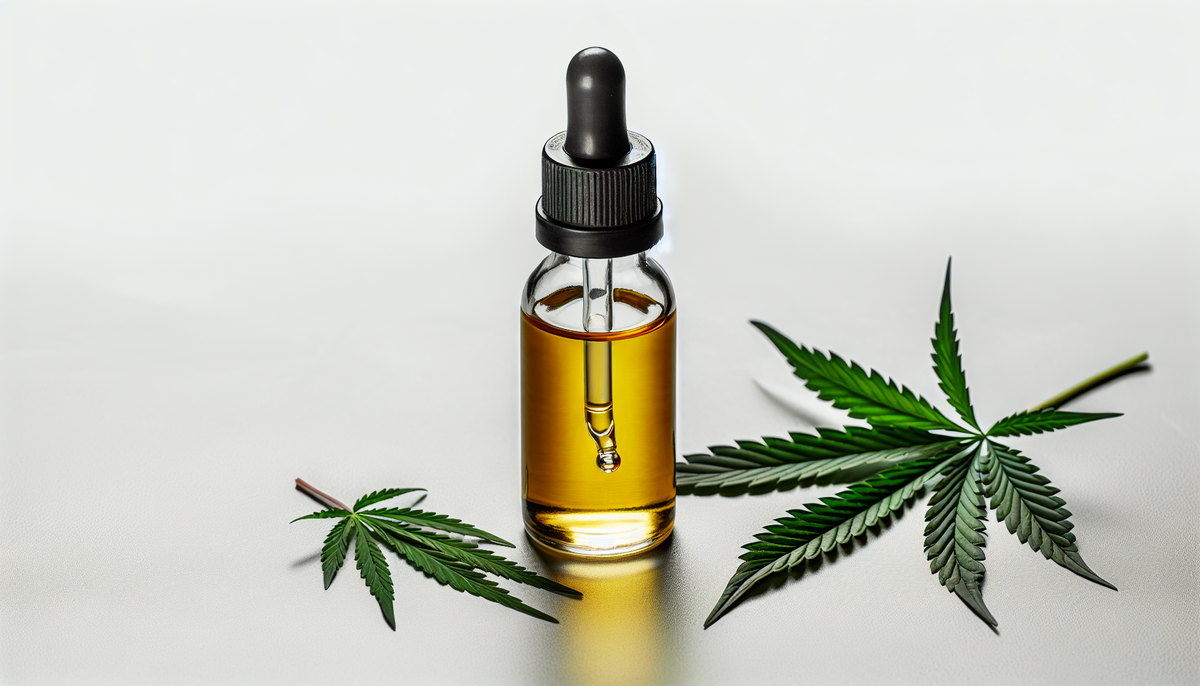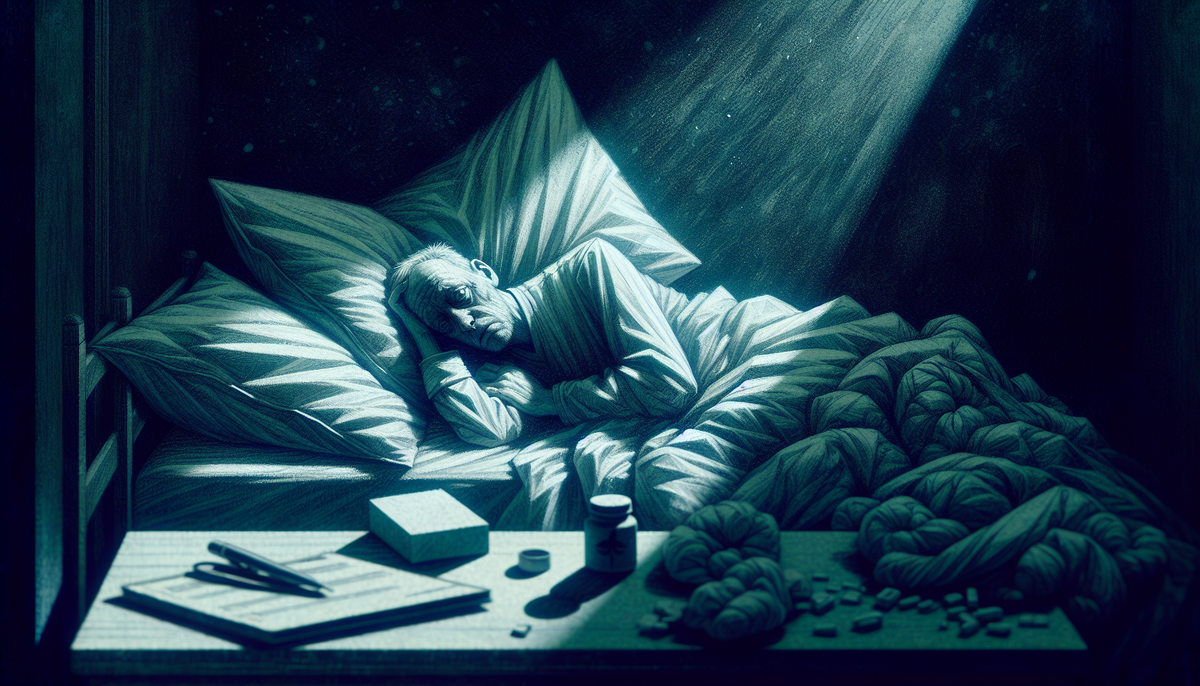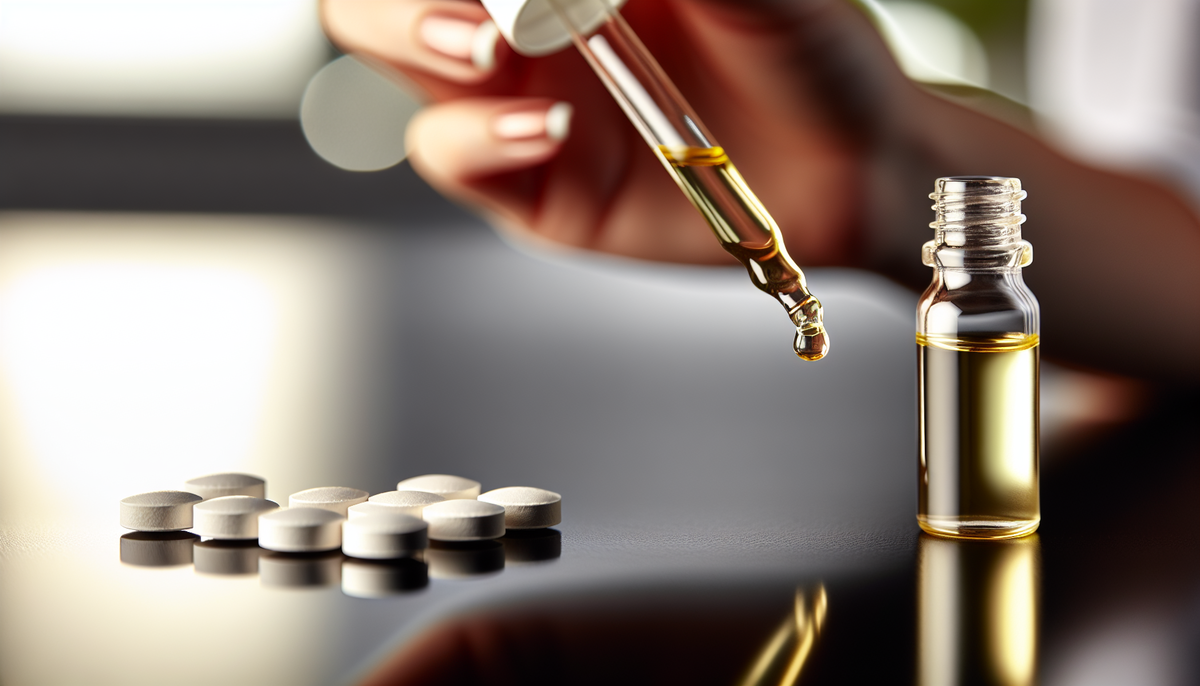CBD Sleep Benefits: The Key to Better Rest?
Written by: Daniel Fayad, Subject Matter Expert and Website President
Published: March 15, 2024; Last updated: April 6, 2024
- 1. Key Takeaways
- 2. Understanding CBD and Its Effects on Sleep
- 2.1 The Endocannabinoid System
- 2.2 CBD vs. THC
- 3. CBD’s Potential Benefits for Sleep Disorders
- 3.1 Insomnia
- 3.2 Circadian Rhythm Disorders
- 3.3 Restless Legs Syndrome
- 4. Safety and Side Effects of CBD for Sleep
- 4.1 Short-term vs. Long-term Use
- 4.2 Possible Drug Interactions
- 5. Choosing the Right CBD Product for Sleep
- 5.1 Forms of CBD
- 5.2 Dosage and Timing
- 6. Legal and Regulatory Considerations
- 6.1 Federal and State Laws
- 6.2 Quality and Purity
- 7. Summary
- 8. Frequently Asked Questions
- 8.1 What is the best CBD to take for sleep?
- 8.2 What drugs should not be taken with CBD?
- 8.3 What are the 3 benefits of CBD?
- 8.4 What is the difference between CBD and THC?
- 8.5 Are there any potential side effects of using CBD for sleep?
- 9. References
Struggling with sleep? CBD might offer the restful remedy you’ve been searching for. This guide cuts through the noise to evaluate how CBD could promote better sleep, based on scientific understanding and research. Skip the fluff – let’s dive straight into the heart of CBD sleep benefits and what current evidence says about its role in managing sleep disorders.
Key Takeaways
CBD, known for interacting with the endocannabinoid system, may affect sleep quality and is distinct from THC, which can prolong slow-wave sleep crucial for restorative rest.
CBD has been studied for its potential benefits in managing various sleep disorders such as insomnia, sleep-disordered breathing, and restless legs syndrome, showing varied efficacy depending on the condition and dosage.
It is important to consult healthcare providers before using CBD for sleep due to its potential side effects, and the appropriate dosage should be considered along with understanding the legal and regulatory landscape, including the need for third-party lab testing.
Understanding CBD and Its Effects on Sleep

CBD, short for cannabidiol, is one of the many psychoactive compounds found in the cannabis plant. It interacts with our body’s endocannabinoid system, a neurochemical network that regulates bodily functions including sleep. Sleep quality might be influenced by this interaction. But before we delve into how CBD potentially affects sleep, it’s worth understanding the difference between CBD and another well-known cannabinoid, THC.
THC, or tetrahydrocannabinol, is notorious for its psychoactive effects. It’s the compound that makes you feel “high”. However, THC has the potential to prolong and enhance slow-wave sleep, a phase crucial for restorative rest. Now, you might be wondering how CBD compares to THC in terms of their effects on sleep. We’ll investigate this further.
The Endocannabinoid System
The endocannabinoid system plays a pivotal role in regulating our body’s sleep-wake cycle. This system is composed of endogenous lipid ligands and cannabinoid receptors, which together regulate bodily functions including sleep. Through the hypothalamus, it impacts sleep regulation and also controls appetite and circadian rhythm. ¹
The hypnotic effects contributing to sleep are largely due to the activation of the CB1 receptor by endocannabinoids.
CBD vs. THC
While THC is generally known for its sedative effects, CBD may exhibit opposing wake-enhancing effects. Some studies indicate that THC increases sedation, while CBD promotes wakefulness. This is a critical distinction to understand, especially for those considering using CBD for sleep.
For sleep improvement, strains of cannabis with a balanced THC and CBD ratio are preferable, since excess THC can hinder sleep initiation.
CBD’s Potential Benefits for Sleep Disorders

Understanding how CBD interacts with our endocannabinoid system allows us to examine its potential benefits for various sleep disorders. Historically, cannabis and cannabinoid compounds like CBD have been recognized for inducing hypnotic effects, suggesting their potential to aid in sleep promotion. CBD has been studied across a range of sleep disorders, including:
Insomnia
Sleep-disordered breathing
Restless legs syndrome
Narcolepsy
Parasomnias
These studies, based on clinical data, have shown varied efficacy. ³
Insomnia
Insomnia, also known as chronic insomnia disorder, is a common sleep disorder characterized by difficulty falling or staying asleep. For those suffering from insomnia, CBD may come as a boon. CBD could help alleviate insomnia by addressing anxiety or chronic pain, which are underlying causes of sleeplessness.
Higher dosages of CBD may be more effective in improving symptoms of insomnia.
Circadian Rhythm Disorders
When the body’s internal clock misaligns with the environment, it results in circadian rhythm disorders, which disrupt sleep patterns. The endocannabinoid system, which CBD interacts with, contributes to sleep stability by experiencing circadian fluctuations of endocannabinoids, particularly through actions at the CB1 receptor.
Restless Legs Syndrome
A neurological condition, restless leg syndrome, induces an uncontrollable urge to move the legs during inactive periods and at night. This can disrupt sleep quality and quantity, and in some cases, may even lead to REM sleep behavior disorder.
Even though early research about CBD’s effectiveness for restless legs syndrome remains inconclusive, it could potentially alleviate chronic pain and inflammation, common symptoms of this condition.
Safety and Side Effects of CBD for Sleep

Despite the many potential sleep benefits of CBD, its safety and potential side effects should not be overlooked. Clinical reviews indicate that CBD is generally well-tolerated. However, it’s essential to consult a healthcare provider before beginning any CBD regimen, especially for sleep enhancement, due to potential interactions with other medications. ²
Short-term vs. Long-term Use
Although short-term use of CBD for sleep is typically deemed safe, its effectiveness might be reduced due to tolerance from long-term use. Upon withdrawal from long-term CBD use, individuals may experience insomnia or poor sleep quality, indicating a potential for dependence.
Possible Drug Interactions
By inhibiting liver enzymes, CBD can affect the metabolism of other drugs, potentially leading to altered drug concentrations and an increase in side effects. Therefore, it’s essential to understand the potential drug interactions with CBD and what medications should be used with caution.
Choosing the Right CBD Product for Sleep

To choose the right CBD product for sleep, one must consider different forms, dosage, and timing. This ensures you find a product that not only suits your preferences but also optimizes its effectiveness for sleep.
Forms of CBD
There are different forms of CBD products for sleep, such as:
Capsules
Gummies
Tinctures
Topical products like patches, sprays, and creams
Each form offers different ways to incorporate CBD into your sleep routine. Each form has its unique advantages and potential drawbacks, so it’s essential to consider which might best suit your needs.
Dosage and Timing
To achieve optimal sleep benefits, it’s necessary to determine the appropriate CBD dosage and timing. New users are recommended to start with a small dosage, such as 5 to 10 mg per day, and to gradually increase the dosage, observing the effects until they find a difference in their sleep quality.
Legal and Regulatory Considerations
Despite the numerous potential sleep benefits of CBD, understanding the legal and regulatory considerations is crucial. The Food and Drug Administration (FDA) regulates over-the-counter CBD products and has not approved any CBD products specifically for sleep improvement.
Federal and State Laws
The source of CBD determines its legal status: CBD derived from hemp is federally legal, while CBD from cannabis plants is not, due to differing THC levels. State regulations on CBD are varied, with some states considering all cannabis products illegal and others permitting CBD use exclusively for medical purposes.
Quality and Purity
To ensure safety, the quality and purity of CBD products must be verified. Third-party lab testing is a critical process for CBD products as it confirms their contents and ensures they are free from harmful substances such as pesticides and toxins.
A Certificate of Analysis (COA) is provided by third-party labs and documents crucial information such as cannabinoid profiles, potency, and the absence of contaminants like heavy metals.
Summary
In conclusion, the potential of CBD for improving sleep quality is promising, with its interaction with the endocannabinoid system playing a pivotal role. While CBD may aid in various sleep disorders by addressing underlying issues like anxiety and chronic pain, it’s essential to consider its safety and potential side effects, especially with long-term use.
Frequently Asked Questions
What is the best CBD to take for sleep?
CBDistillery’s 5,000mg tincture is recommended for a potent CBD dose to help stay asleep, as it is one of the strongest full-spectrum CBD oils on the market.
What drugs should not be taken with CBD?
CBD should not be taken with drugs such as antihistamines (e.g., Benadryl), benzodiazepines (e.g., Xanax), antipsychotics, antidepressants, opioids, alcohol, and supplements like kava, melatonin, and St. John’s Wort, as it can increase drowsiness and fatigue.
What are the 3 benefits of CBD?
CBD has been linked to providing benefits for anxiety, depression, and pain relief, making it a potential option for managing these conditions. It may also help with insomnia and other health conditions.
What is the difference between CBD and THC?
The main difference between CBD and THC is that THC is known for its sedative effects, while CBD may promote wakefulness. This can have an impact on sleep quality.
Are there any potential side effects of using CBD for sleep?
Yes, there are potential side effects of using CBD for sleep, including somnolence, dizziness, euphoria, disorientation, and paranoia, and long-term use may lead to habituation, cognitive impairment, and other adverse effects.
References
Kaul, M., Zee, P. C., & Sahni, A. S. (2021). Effects of Cannabinoids on Sleep and their Therapeutic Potential for Sleep Disorders. Neurotherapeutics : the journal of the American Society for Experimental NeuroTherapeutics, 18(1), 217–227. https://doi.org/10.1007/s13311-021-01013-w
professional, C. C. medical. (n.d.). Muscle pain: Causes, symptoms, treatment, prevention. Cleveland Clinic. https://my.clevelandclinic.org/health/symptoms/17669-muscle-pain
Cannabis for sleep: Benefits and risks. Sleep Foundation. (2023a, December 20). https://www.sleepfoundation.org/sleep-aids/cannabis-and-sleep

Written by Daniel Fayad - Subject Matter Expert and Website President
Dan Fayad is a results-driven healthcare administration expert and content writer. With a Master of Health Administration from the University of Southern California, he’s carved a niche for himself in the dynamic world of healthcare and business development. Dan uses his experience to educate and empower people on their wellness journeys.
Join the CBDeals Club!
Get 10% off your first order and receive our best and exclusive promotions directly to your inbox!

